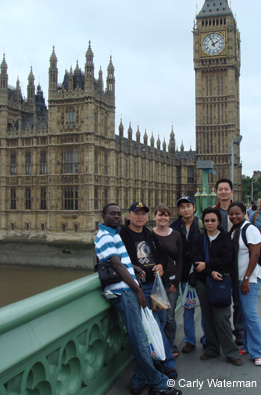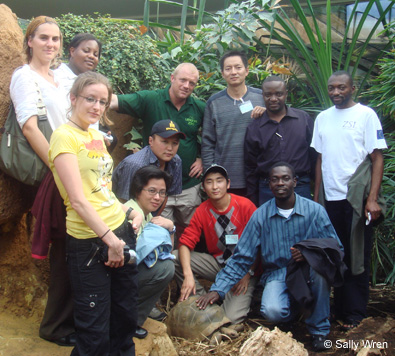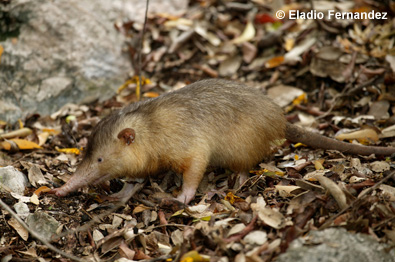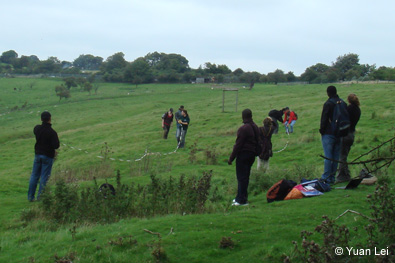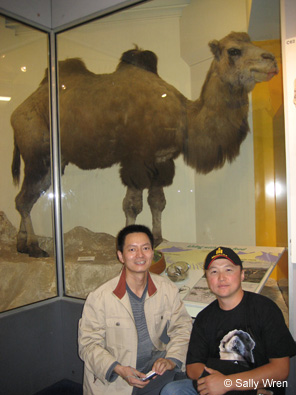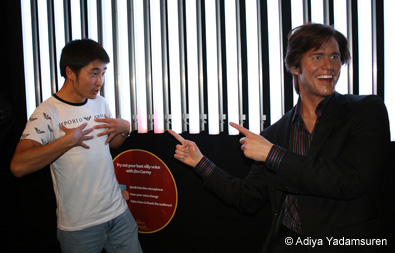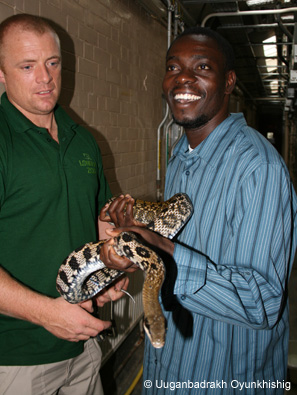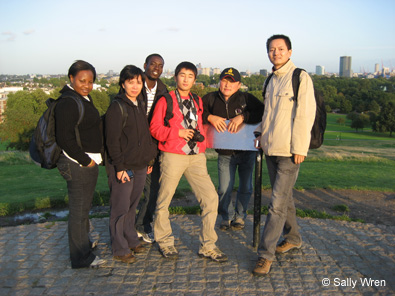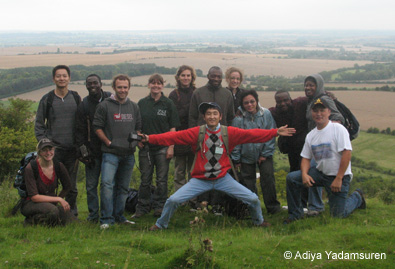At the end of August six young conservationists were brought to the UK by ZSL’s EDGE of Existence programme to attend a two week conservation skills training course. The course was an integral part of the EDGE Fellowship programme, which trains aspiring in-country conservationists, providing technical, institutional and financial support for them to carry out research and conservation for a top priority EDGE species.
We strongly believe that training and equipping local stakeholders with adequate research, conservation skills and resources are essential components of conservation. The EDGE Fellows programme was developed to identify budding in-country conservationists, students or park rangers who are keen to develop the skills needed to become a successful conservation professional.
A key part of the EDGE Fellows programme is this two-week training course held at ZSL London Zoo. This year was the first course, which ran from 25th August to 5th September and was attended by six EDGE Fellows working on mammal species and three in-country workers from another ZSL conservation project in Virunga National Park, DRC.
These inspirational individuals study and strive for the conservation of some incredibly distinctive species, including the Bactrian camel, which is superbly adapted for life on the hard Gobi Desert, the bumblebee bat, the smallest mammal in the world, and the Hispaniolan solenodon, one of the only venomous mammal species.
The course aimed to enable EDGE Fellows to develop skills needed to be a successful conservationist, with sessions facilitated by experts from all parts of ZSL including Conservation Programmes, the Institute of Zoology and Discovery & Learning. Developing practical and theoretical conservation skills, the course equipped these young scientists with the knowledge and experience to become successful conservation professionals.
The first week of the course focussed on practical skills, and included sessions on planning research and conservation projects, biological monitoring, using Population Viability Analysis as a conservation tool, and writing strategic Conservation Action Plans. This week also included a field trip to ZSL Whipsnade Zoo, where some of the practical monitoring techniques were demonstrated, including transects and camera trapping.
The second week focussed on raising awareness of conservation issues and projects. An essential core was two days of interactive sessions looking at planning and implementing a CEPA (Communication, Education & Public Awareness) programme for conservation, aimed at creating behaviour change to benefit endangered species. The second week also included sessions on how to present your project/research to a variety of audiences, including the media, and EDGE Fellows were given advice on making successful funding applications.
Needless to say, in between all the hard work many fun times were had, including a day taking in the London sights, with a visit to the Natural History Museum to search for the Fellow’s EDGE species (the Bactrian camel being the only one on display) and a turn around the London Eye. The Fellows also got the chance to meet a few celebrities at Madame Tussauds, and a few of the residents at ZSL’s zoos.
Positive feedback was received from all of the attendees, and as a result of this encouraging feedback and the success of the training we aim to run the course again, thus providing the opportunity for further groups of aspiring conservationists to receive this influential training.
Here are some comments from the EDGE Fellows:
‘I like to say thanks ZSL for arranging the wonderful EDGE Fellow conservation training course in London . As one of the EDGE Fellowships I had chance visit London with deep impression. The city is a very beautiful city with lots of garden, full of history and famous old buildings, sinuous Thames.’
Yuan Lei, Bactrian camel EDGE Fellow from China.
‘An unforgettable summer!!! The way they presented the subjects was wonderful. Not only that, we had a social part we had so much fun. We visited several part of London; like the Palace of the Queen, the Natural History Museum, British Museum, Madame Tussauds, Caribbean carnival. Then, we tried several foods in several restaurants of different nations. The meal I preferred the most was the Russian one. It was a blessing for me to meet such wonderful people in London… it was the best summer I have ever had! I won t forget that summer in my life!’
Osé Pauléus, Hispaniolan solenodon EDGE Fellow from Haiti.
‘This course is very amazing. Because London is my first country and first visit.
I like anything within this course and London trips. I’d like to display my kind thanks to EDGE team, supporters, donors, teachers and some zoo’s workers because if you didn’t help me, I can’t attend course, complete master degree, visit UK and make many friends.’
Uuganbadrakh Oyunkhishig, long-eared jerboa EDGE Fellow from Mongolia.
If you would like to help support EDGE Fellows working on poorly-known and unique species then please become an EDGE Champion or donate here.
